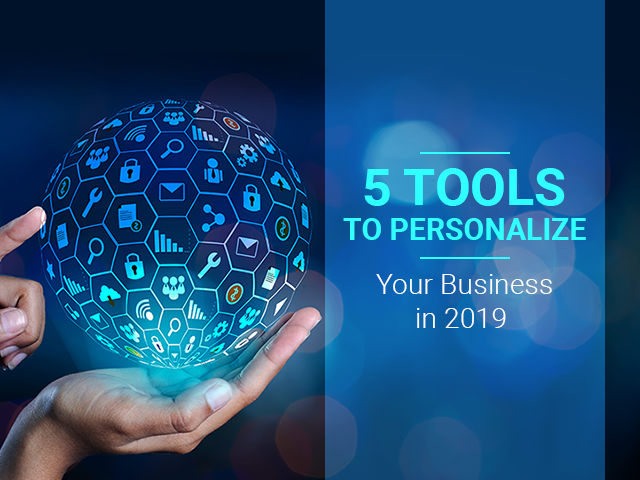Statistics prove that digital marketing-driven companies are actively turning to personalized marketing tools. According to a survey conducted by Infosys, 86% customers agree that personalization has influenced their shopping habits and decision-making.
While personalization can be done manually, as the business grows a user base, it becomes difficult to prevent the chances of human error, not to mention the amount of time a marketer would have to spend on a daily basis.
In order to be able to provide a personalized experience to a wide and ever-growing base of clients, marketing managers use tools that include messenger chatbots, custom data-management platforms, and AI and predictive analytic tools among others.

Here are the 5 of the top business personalization tools that you can look forward to for personalizing your customer’s experience:
1. Barilliance
Barilliance is among the leading all-in-one digital marketing solutions for personalizing the e-commerce ecosystem. It allows store managers to create a personalized experience for shoppers at every step of a customer journey. It offers dozens of features related to website personalization as well as social media and email marketing.
Key features:
- Create personalized retargeting emails
- Embed personalized product recommendations to your website
- Alerts and notifications about real-time shopper’s activity on the website
- Get access to advanced shopping statistics and reports
2. LiveChat
LiveChat is an automated chat system created that is capable of managing long strings of dialogues. Using LiveChat, a business owner can answer questions instantly as well guide customers towards Check Out, increasing conversion tremendously.

Key features:
- Personalized chat windows
- Embed a chat window into Facebook and other social media platforms for omnichannel marketing
- Advanced reports and analytics
- 50+ integrations with marketing and automation tools
- A flexible ticketing system
3. Adobe Target
Adobe Target is a tool for targeted A/B testing, mobile, email, and server-side optimization. A marketer can improve the personalization level with two modes – rules-based and one-click personalization. You can benefit from behavioral targeting, content and social media recommendations, automated offers, and segmentation.
Key features:
- Multivariate and multi-armed bandit testing
- Connected device optimization
- Batch experience prefetch
- Personalized search, recommendations engine, and content
4. MailChimp
MailChimp is the go-to tool when it comes to automating personalized email marketing campaigns. The variety of features is enormous, and the interface suits the needs of both –
new and advanced marketers. The best part is that MailChimp also has a free subscription variant that allows you to try out the programme’s features before you invest in personalized marketing.
Key features:
- Built-in email template designer
- Personalized fields ;
- Email distribution by time zone
- Advanced reports and statistics
- Campaign social media stats
5. Google Optimize 360
Google Optimize 360 is a free tool that allows marketers to test different website personalization workflows and decide which ones work best based on advanced statistics. The solution is a possibility to get a better insight on how to personalize your business.
Key features:
- Google Analytics integration
- Native statistics reporting
- Improved Google Ads segmentation
- Split, A/B, server-side, and multivariate testing
- Visual website editor
- A suite of tools for campaign management
Irrespective of the tool you choose, remember that business personalization is a trend that is only set to grow as brands compete for customers’ time more than ever. Tailoring unique experiences allows companies to get a better grasp on the audience, improve the efficiency of advertising and content, and increase conversion rates.
Using technology for business personalization is a way to upscale marketing in a quick and efficient way. There are various off-the-shelf solutions to help companies reach each customer personally. Another way to go would be by developing a custom solution, proprietary to your company. No matter which way you go about it, at the end of the day, personalized marketing will pay off in terms of both – improved brand awareness as well as increased sales and revenue.






